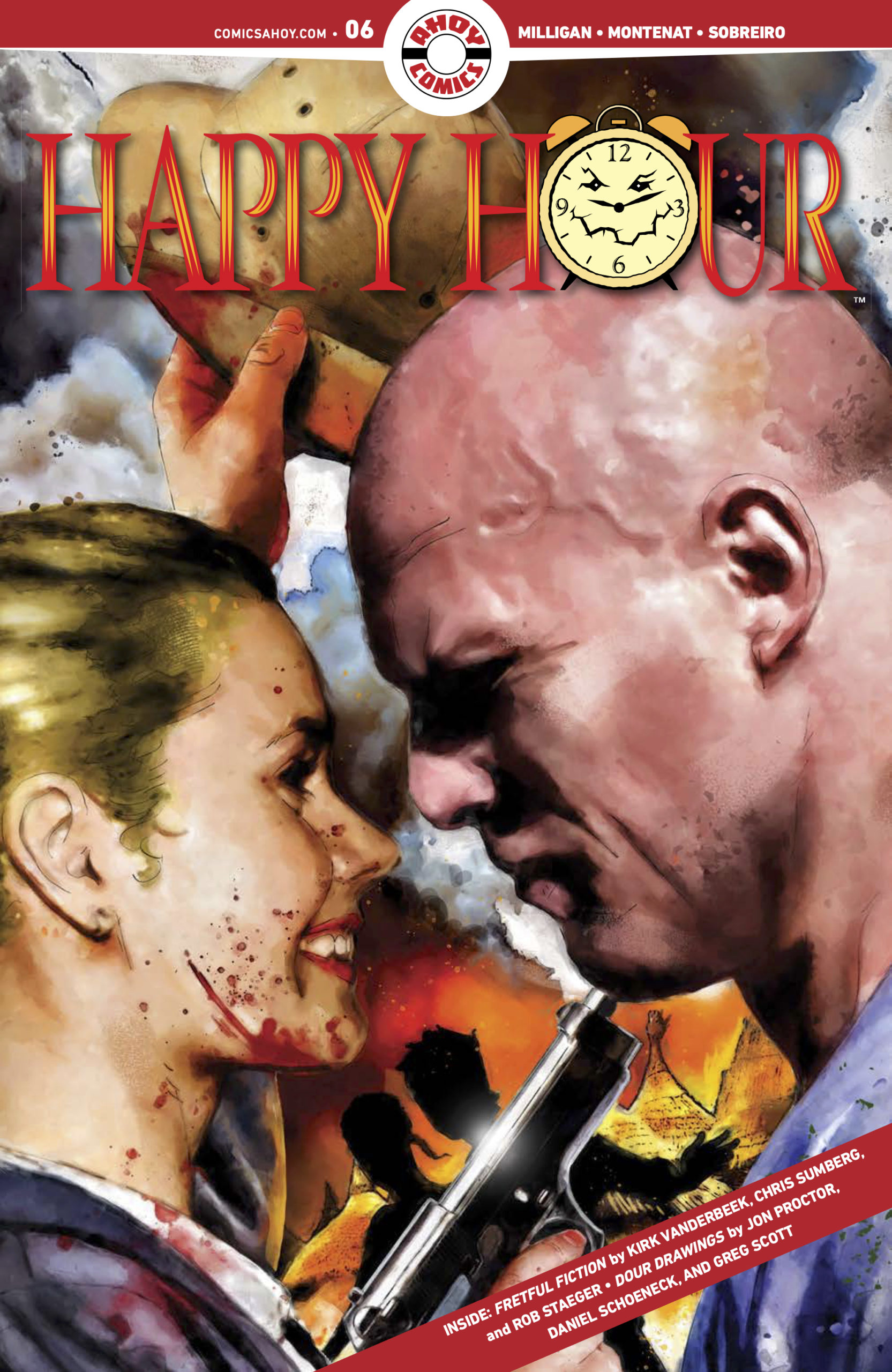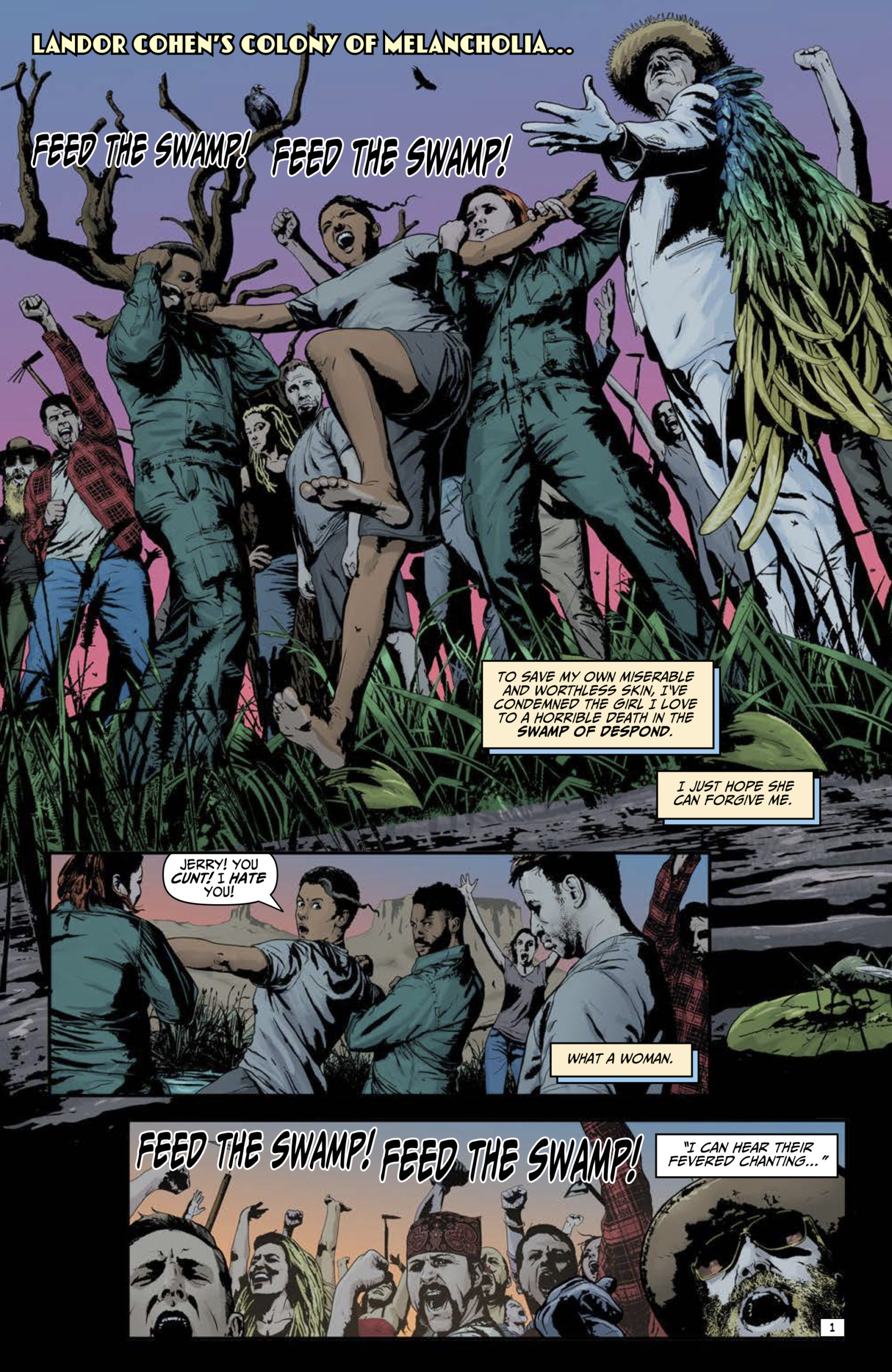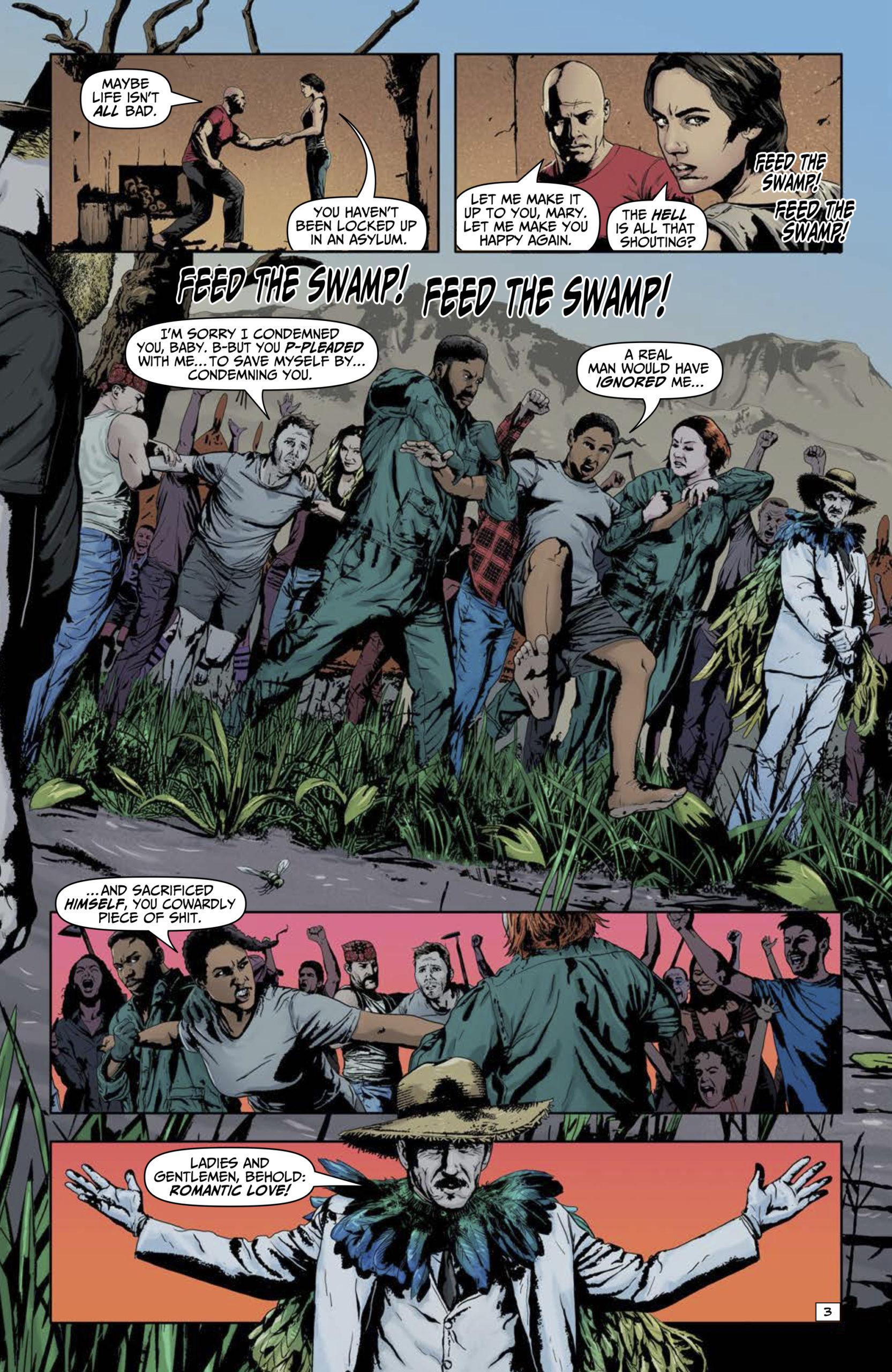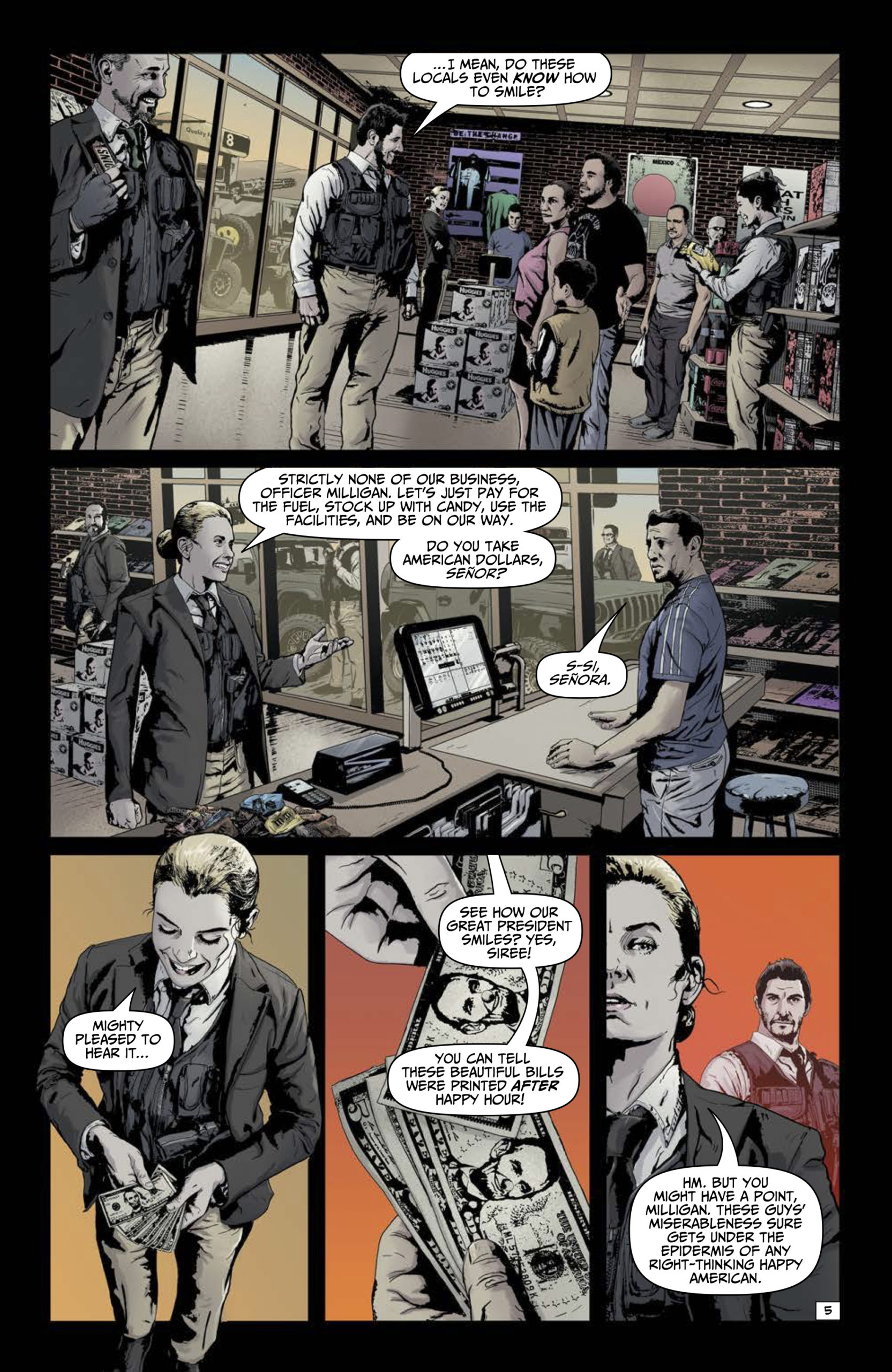Indie Comics Review: Happy Hour #6 [Editor’s Note: This review may contain spoilers]
[Editor’s Note: This review may contain spoilers]
Writer: Peter Milligan
Art: Michael Montenat
Colors: Felipe Sobreiro
Letters: Rob Steen
Reviewed by: Matthew B. Lloyd
Summary
As Kim is about to be fed to the swamp, the Happy Police arrive en force and it’s hard to tell if things are going to end happily, sadly…or something else entirely…!
Positives
With a series that has dealt so directly with the human condition, it only seems right that we get life and death in the climax of the conflict. Additionally, since the human condition cannot be defined in simple terms like “happy” and “sad,” it’s appropriate (and brilliant) that Happy Hour #6 ends somewhere else. There’s a lot to digest in the final? issue (I suppose there could be more, we are teased with “The End?”}
Ironically (that will be really funny by the time this review is done), this story does have a happy ending. The basic premise started with Jerry and Kim attempting to escape the government version of happiness in order to be miserable. Along the way they found something else that brought them happiness. Of course, it wasn’t the government mandated happiness, but rather a happiness they found on their own terms through falling in love. Gee, sounds like real life doesn’t it? That sort of seems to be the thing that’s unfolded. The story is working on multiple levels. One the most basic level it’s a soft sci-fi story about a dystopian future- more irony because it’s called “happy hour.” However we can also look at the whole thing as an analog of sorts.

If Jerry and Kim represent the average person, the happy police/government is people telling you to be happy, or do things “this way.” Landor Cohen’s commune represents the opposite viewpoint (whatever that might be!). As one grows and explores life and tries to experience the counter argument because it “feels” right, it comes down to finding one’s own path. While there are different ways to take this story, stepping back and looking at it from a macro-perspective gives this reviewer this insight. It may seem too simplistic or obvious, but taking into consideration that the story involves the conflict of two wholly opposite conditions it makes sense that in life there’s got to be a middle ground and a fluidity between these emotions. The people that are truly happy are those that get to experience both sides, naturally. There’s even a moment where McSmith of the Happy Police is confronted with the notions that Sullivan has found happiness by going to the misery commune. (There’s other factors at play, but McSmith sees the logic of his turn from misery to happiness on his own terms.)
Positives Cont’d
The narrative itself finds Jerry standing up for Kim and not letting her die alone. Love triumphs as Jerry sees he can’t let her die and does what he can, whether it succeeds or not. It’s better to get those true feelings out there and die together than live in regret. (More irony.) In the midst of the assault, Jerry and Kim are pulled from the swamp by Sullivan and they all escape separately. Jerry and Kim while on the run stumble upon the most bizarre thing, and English double decker bus in the desert. Irony?

The story takes an unexpected turn that again ends with a reading on multiple levels. They end up amongst a group of folks who subscribe to neither happiness or sadness. From a narrative perspective, they seem to be in yet another predicament, and the end suggests that there could be more to the story (please! yes!) However, there also seems to be a reading that they have just come to the obvious conclusion for characters who have found happiness by travelling to a place that embraces misery and sadness. They have escaped and been swept into a camp surrounded by people who subscribe to Irony.
There are some genuinely funny moments in this issue that remind the reader for all the serious pontificating above, this is Happy Hour is also satire. One of the curious decisions by writer Peter Milligan is to name one of the members of the Happy Police (get ready for it)- Milligan! It’s hard to work out exactly what he’s saying about himself if anything, but it seems significant. I don’t believe for a second that he chose Milligan because he couldn’t think of any other names. Michael Montenat turns in another great looking issue, communicating all he can with facial expressions and body language and also making everyone recognizable with a unique appearance.

Negatives
It’s over…or is it? It sort of had to end, though- didn’t it?
Verdict
Happy Hour is smart, funny and insightful. It discusses the human condition in a unique and entertaining manner quite unlike anything else. Happy Hour #6 ends with a brilliant ending that works on multiple levels and keeps the reader thinking long after the reading is over. Don’t miss this special comic, even if you have to wait for the collected edition. It doesn’t get much better than this.
